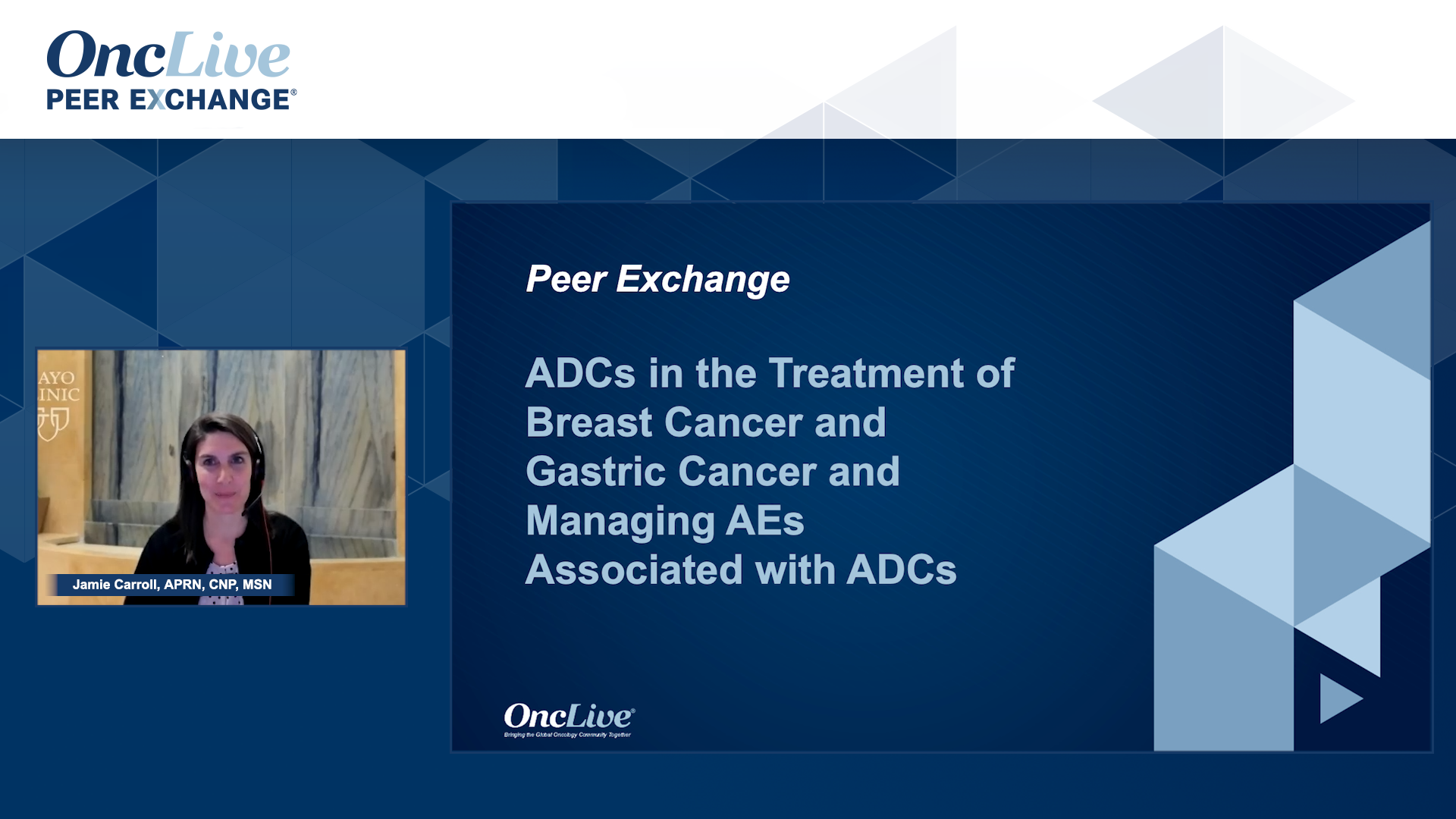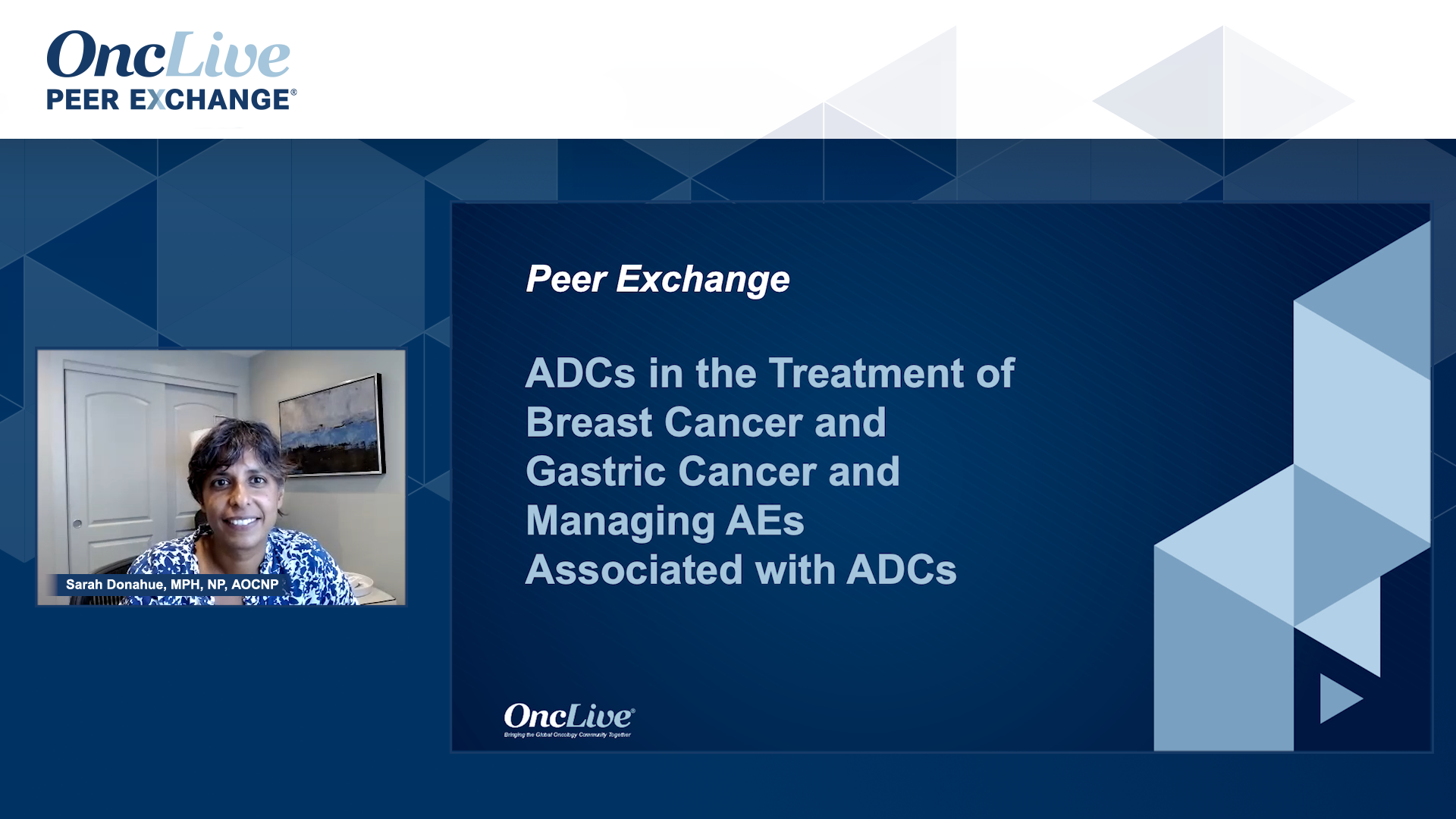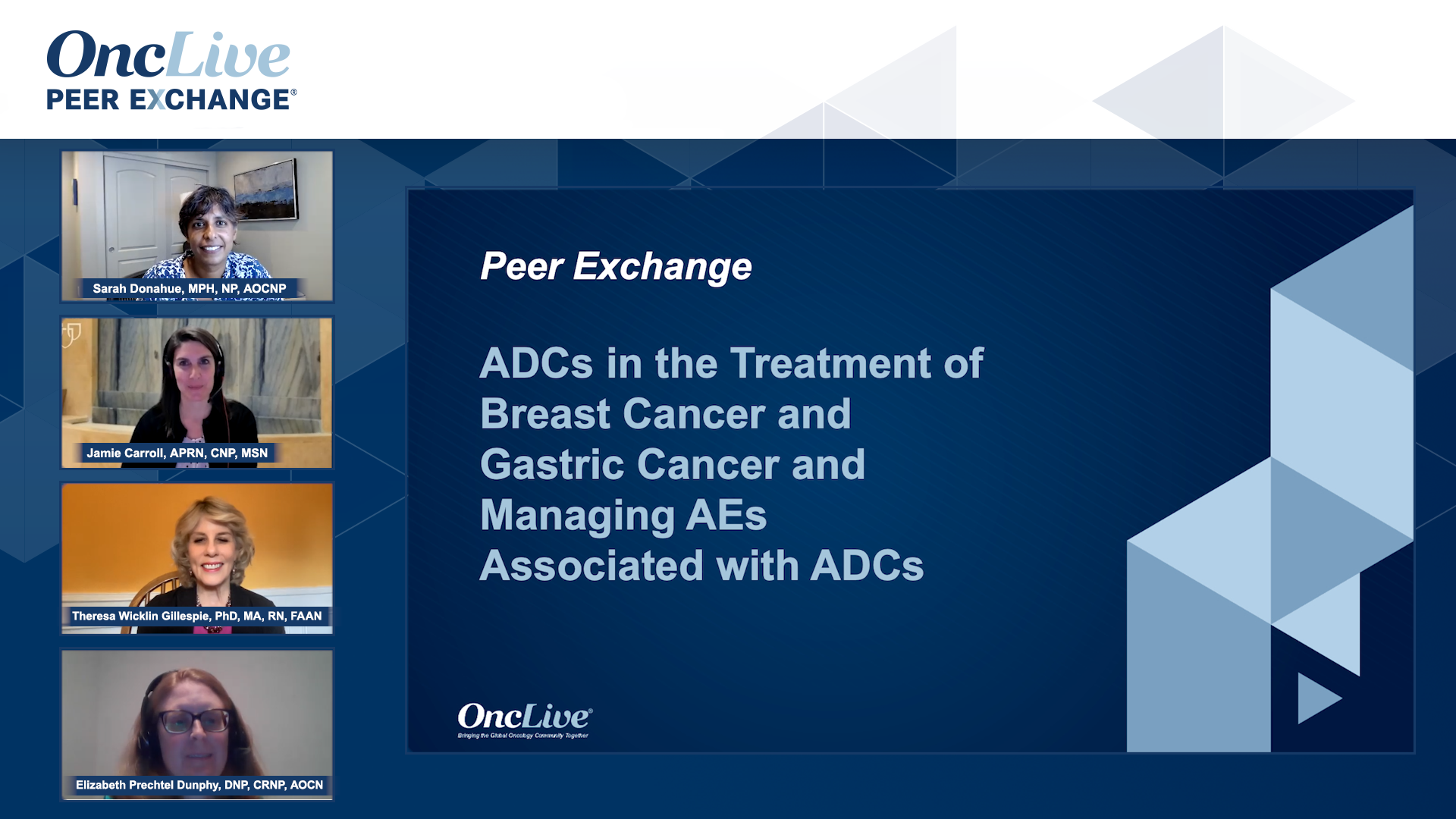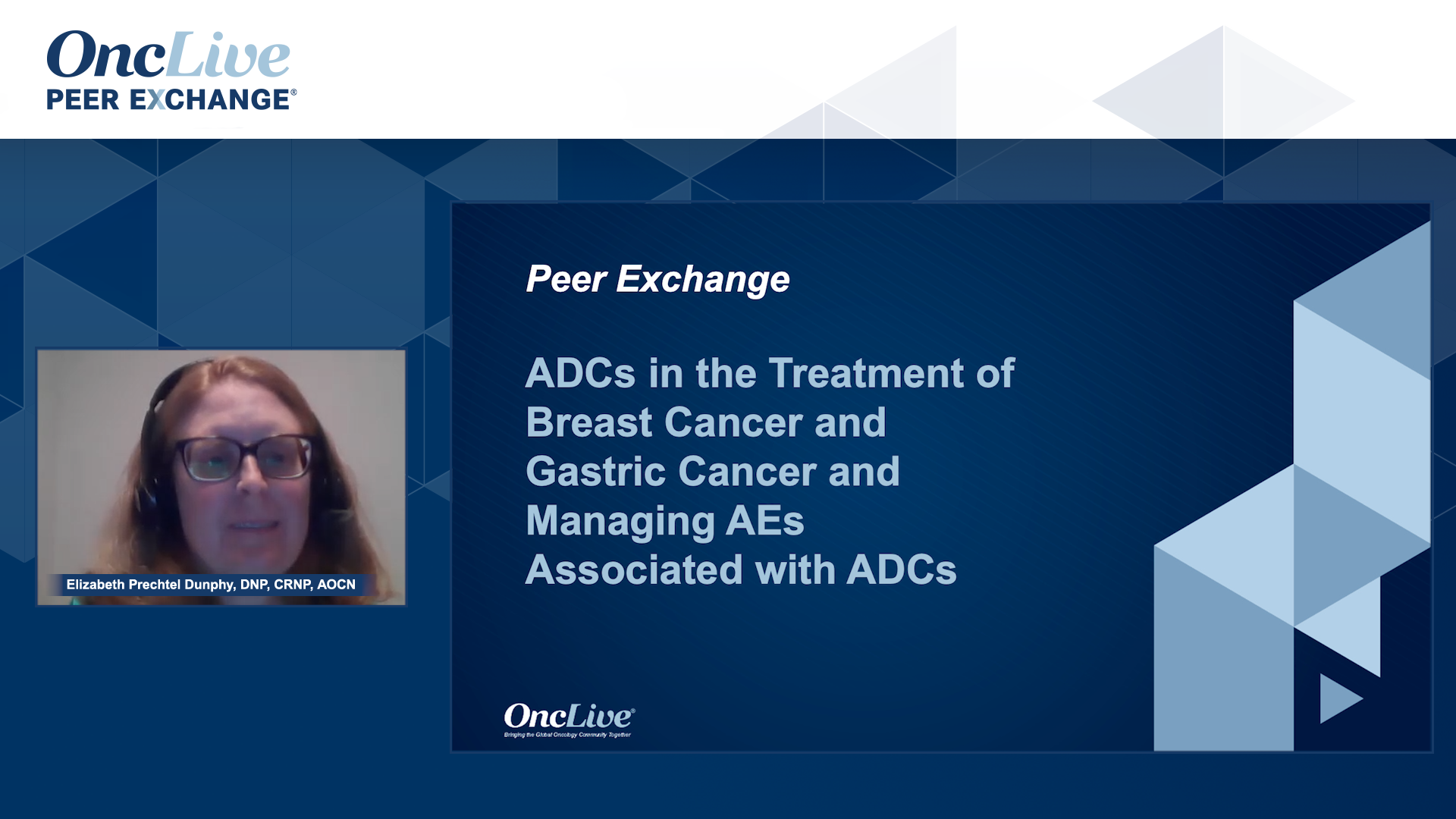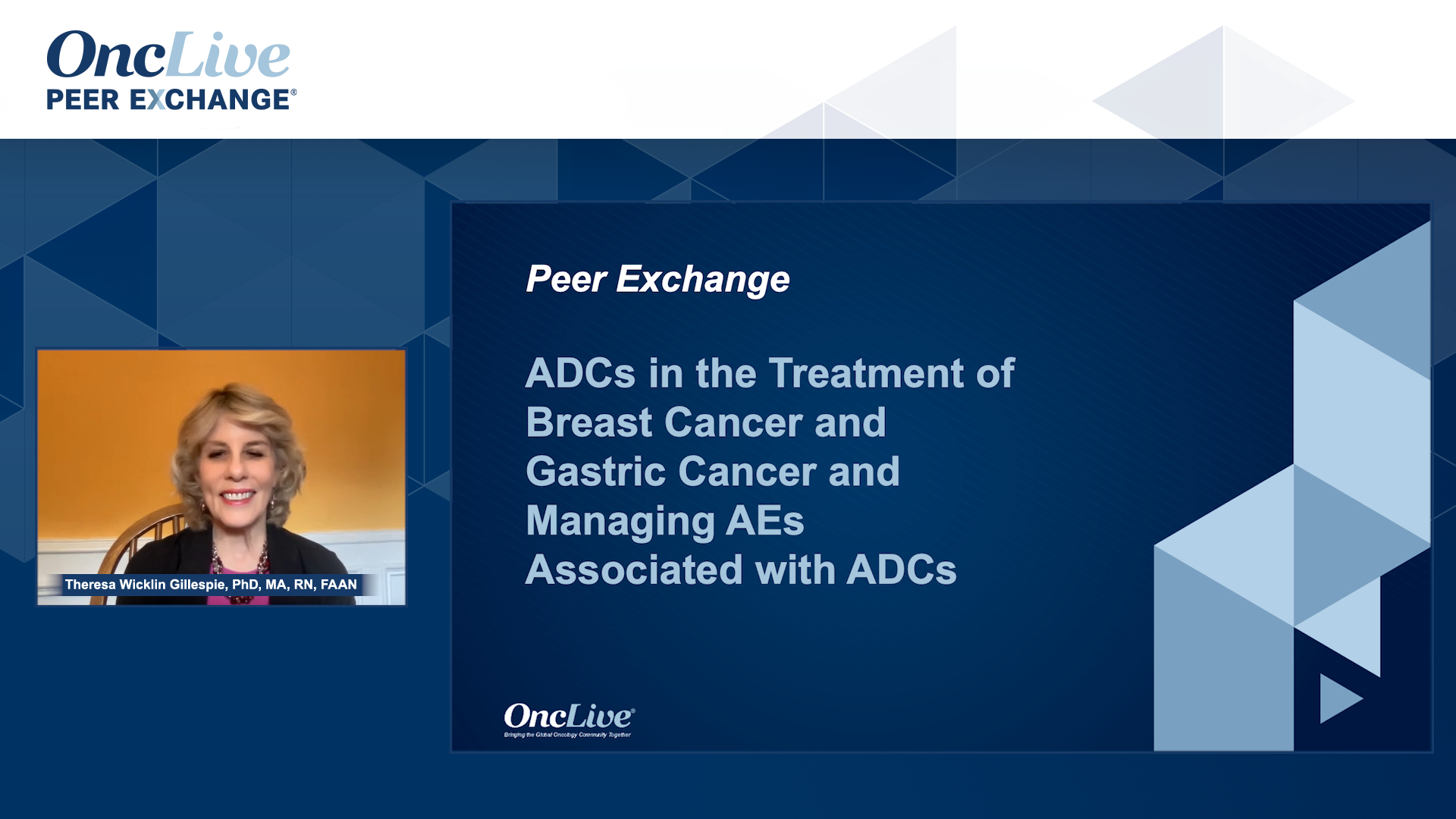Pembrolizumab Is Approved for Patients With HER2– Gastric/GEJ Adenocarcinoma
The FDA has approved pembrolizumab plus chemotherapy to treat adults with locally advanced or metastatic, HER2-negative gastric cancers.
Pembrolizumab Is Approved for Patients With HER2– Gastric/GEJ Adenocarcinoma

Pembrolizumab (Keytruda), in combination with chemotherapy, is now approved as a frontline treatment for patients with locally advanced unresectable or metastatic, HER2-negative gastric or gastroesophageal junction (GEJ) adenocarcinoma.1
The approval is supported by findings from the phase 3 KEYNOTE-859 trial (NCT03675737), which demonstrated that adding the immunotherapy to chemotherapy lengthened overall and progression-free survival (PFS), as well as boosted overall response rates (ORR).
Specifically, at a median follow-up of 31.0 months (range, 15.3-14.6), those who received pembrolizumab in addition to chemotherapy (n = 790) achieved a median overall survival (OS) of 12.9 months (95% CI, 11.9-14.0). Among those who received chemotherapy alone, the median OS was 11.5 months (95% CI, 10.6-12.1), yielding a hazard ratio of 0.78 (95% CI, 0.70-0.87; P < .0001).
In terms of PFS, the dual regimen and chemotherapy alone arm reached a median of 6.9 months (95% CI, 6.3-7.2) vs 5.6 months (95% CI, 5.5-5.7) respectively, resulting in a 24% reduced risk of disease progression or death (HR, 0.76; 95% CI, 0.67-0.85; P < .0001).
Patients receiving immunotherapy were also more likely to respond to treatment overall (51% vs 42%; P < .0001). Among responders, the median duration of response was 8 months (95% CI, 7.0-9.7) vs 5.7 months (95% CI, 5.5-6.9), respectively.
In the trial, 15% of patients in the experimental arm discontinued treatment because of adverse events. The most common causes were infections and diarrhea.
The recommended dosage in this setting is 200 mg every 3 weeks or 400 mg every 6 weeks. Treatment can continue until either disease progression or unacceptable toxicity. Pembrolizumab should be administered prior to chemotherapy, and they should both be given on the same day.
Of note, pembrolizumab is also approved with chemotherapy to treat patients with HER2-positrive gastric or gastroesophageal junction adenocarcinoma whose tumors express PD-L1, as approved by an FDA-approved test.
Reference
- FDA approves pembrolizumab with chemotherapy for HER2-negative gastric or gastroesophageal junction adenocarcinoma. News release. U.S. Food & Drug Administration. November 16, 2023. Accessed November 16, 2023. https://tinyurl.com/5fcr79ez







